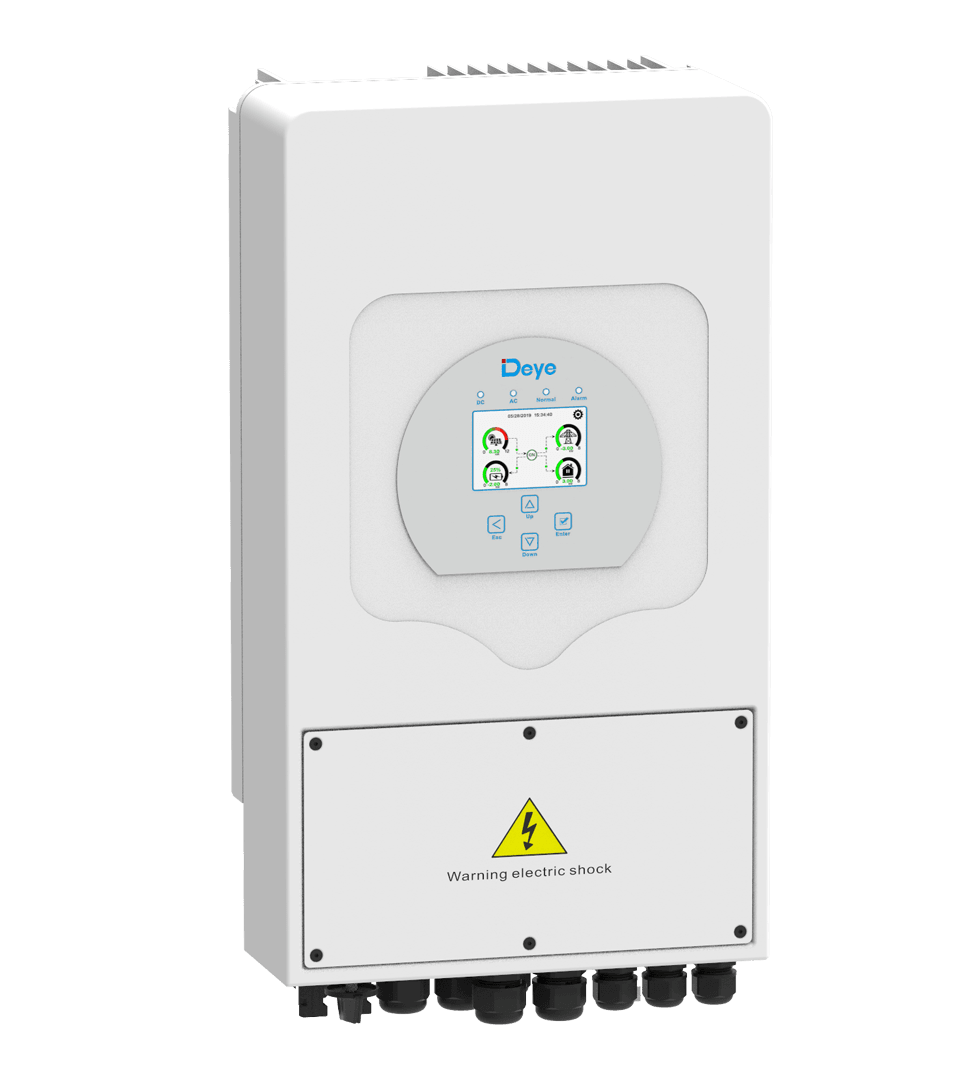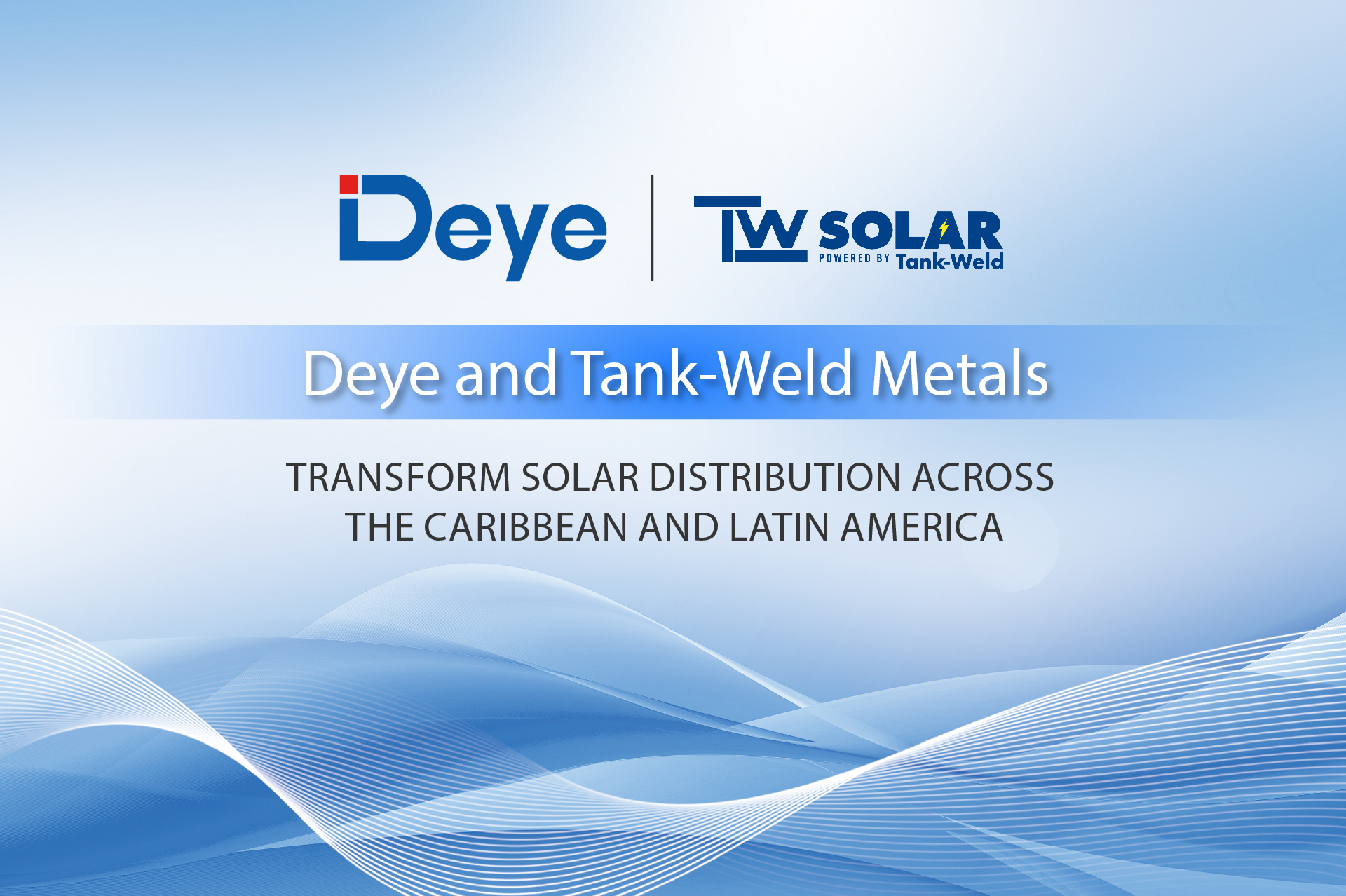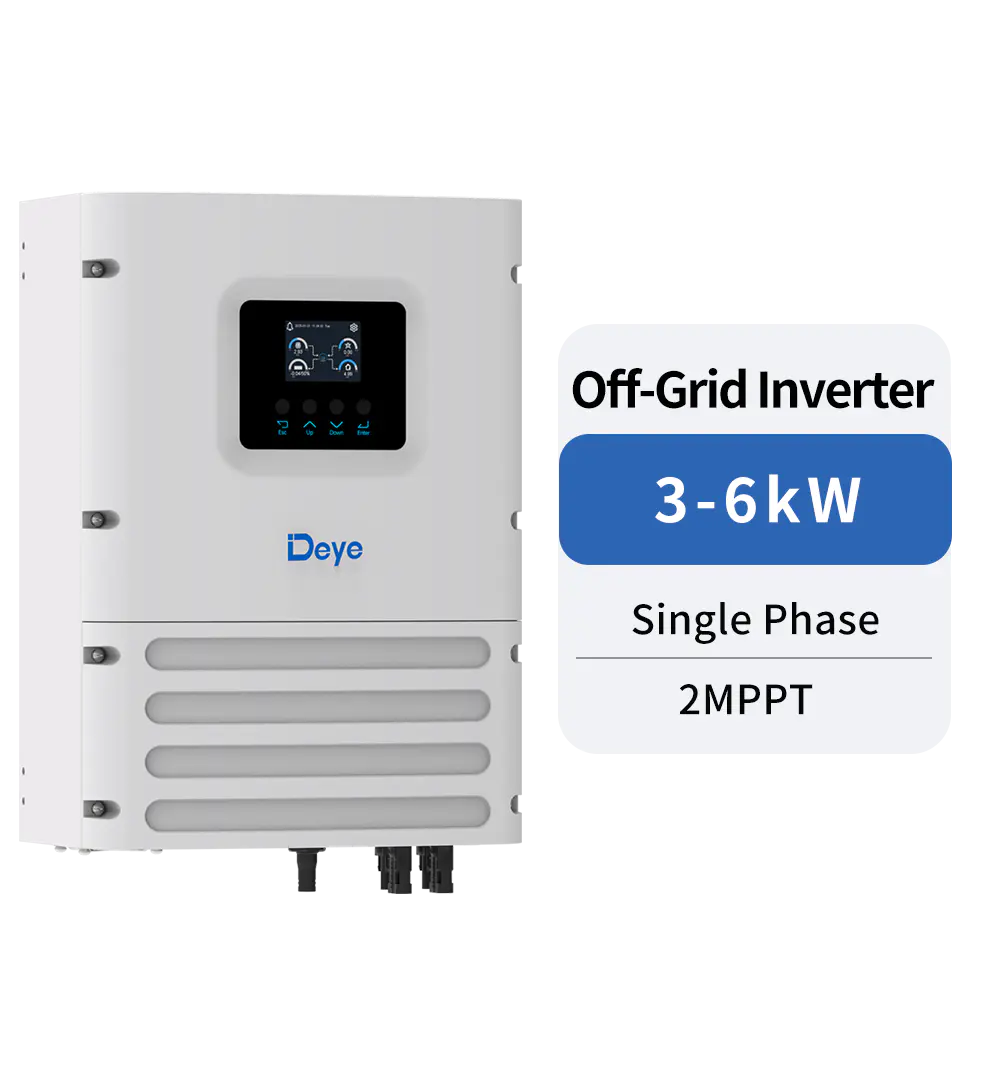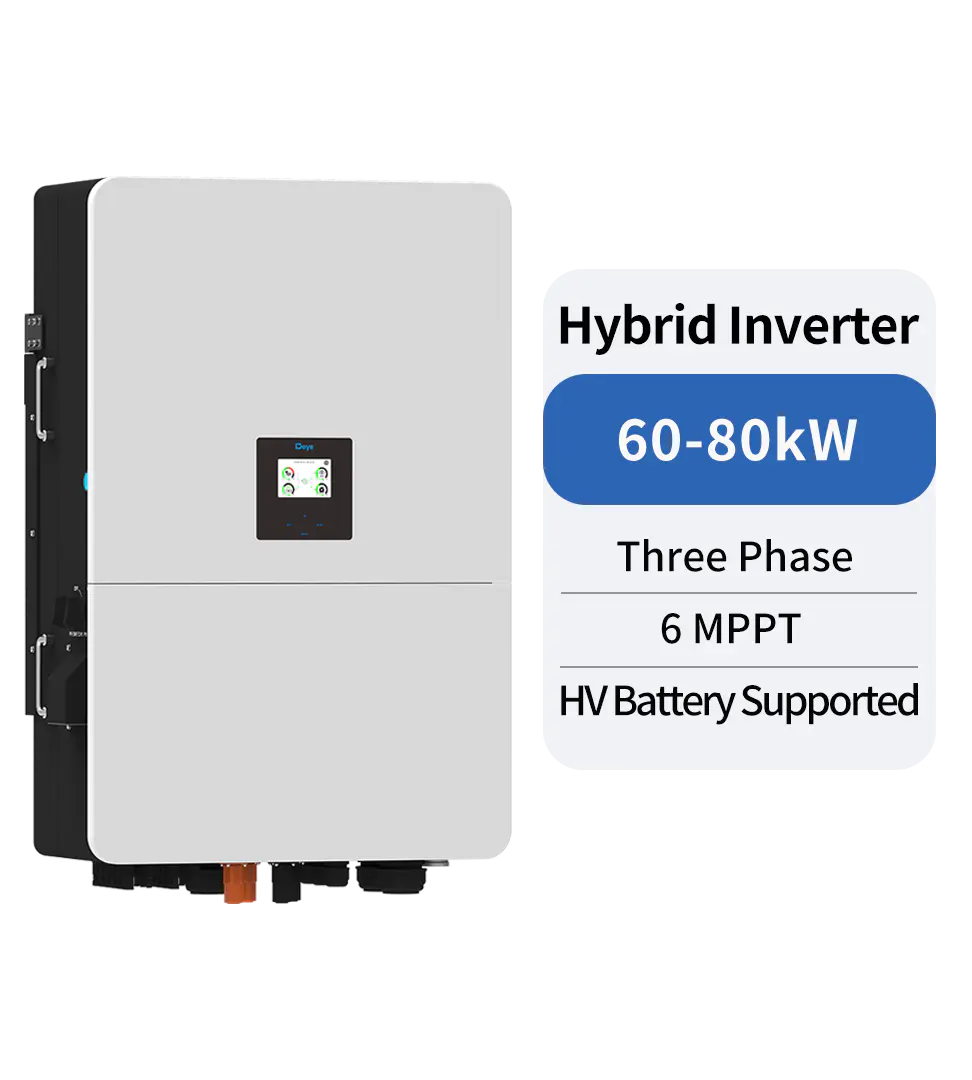Technical Topics
Residential and Commercial Mixed Inverters - Export system no
If you need to store energy from the sun, you may need a hybrid inverter. There are many types of hybrid inverters, including the Deye inverter and the low voltage battery hybrid inverter. Here's some information about each, including their benefits.
Deye inverters use two main methods to convert DC power to AC power and vice versa. The 1st method it uses is called the battery bank approach, and it's an option that allows you to store energy for times when your solar array or wind turbine isn't generating enough power. energy and so you need to store extra energy. The second method is called thermal engineering and uses a thermal oxidant to raise the temperature of storage compartments over a long period of time.
If you are building a new home or converting an existing home to run on solar energy, you may be worried about the cost of a hybrid inverter. The cost of these batteries will depend on the type of battery you use and the number of cells you buy. You should consult a residential solar expert for advice on the better battery inverter for your particular situation. He or she should be able to advise you on the max. amount of time the battery can maintain its charge and the better operating temperature for the cells. Depending on the type of battery you purchase, you may also have a choice between a standard battery inverter or an inverter that combines the functions of both battery and solar inverters.

Low voltage battery mixed inverters work well in combination with the PV array you have installed on your roof. An inverter converts the excess power normally taken from your grid back into DC power that your solar panels can use. These types of systems can save up to 75% or more over the life of the PV system. Some of these systems also work well as a standard inverter.
Residential solar systems are a good option for individuals who want to power their homes but don't want to pay the hefty cost of buying and installing new solar panels. These systems use a combination of a high-performance hybrid inverter and battery backup to offset the initial purchase and installation costs of PV panels. These systems work well even in parts of the country that don't get enough sunshine to generate solar electricity every year. Power banks are designed to provide power on days with little or no sun, and the batteries can be used to power devices during the night. This is a great way to power your home during weather-related emergencies.
Home solar PV systems work by capturing energy during the day, converting it into DC power, and storing it in a battery. At night or on cloudy days, the battery stores extra energy and allows you to have the energy to operate lighting, appliances and air conditioning. During a typical power failure, a residential hybrid inverter with battery backup will automatically switch to battery power. After disconnecting the power, the inverter will automatically reverse and start supplying energy to your home. The process is self-propelled and will continue to run on stored power even during a power outage. As long as you avoid being in an area with severe solar storms, this type of residential hybrid inverter system will continue to power your home.
Commercial mixed inverters will bring homeowners a lot of benefits. If a power outage occurs in particularly great weather conditions, residential hybrid inverters can power your entire building or business and protect sensitive electrical machinery and equipment. feel important to your company's operations. Even with a low-voltage backup battery, the battery will still hold enough power to bring the building or business online and resume normal operations. Many commercially available hybrid inverters come with both low voltage Battery backup and optional 'Battery On' runtime capability.
Ultimately, the Zero Export residential mixed inverter system can be a great investment for both commercial and home businesses. As the name implies, a zero export system will allow you to power your country from anywhere in the world. While more countries will not require you to export your electricity, those countries may have very strict guidelines and regulations regarding their use. The zero export system will allow you to take advantage of markets that you cannot access such as remote rural areas or developing countries. With the zero output system, you never have to worry about being stuck in a power outage situation.
PREV:Compare String Inverters with Micro . Inverters
NEXT:Hybrid Inverters Make it Easy to Switch From Your Current Power Provider
Deye inverters use two main methods to convert DC power to AC power and vice versa. The 1st method it uses is called the battery bank approach, and it's an option that allows you to store energy for times when your solar array or wind turbine isn't generating enough power. energy and so you need to store extra energy. The second method is called thermal engineering and uses a thermal oxidant to raise the temperature of storage compartments over a long period of time.
If you are building a new home or converting an existing home to run on solar energy, you may be worried about the cost of a hybrid inverter. The cost of these batteries will depend on the type of battery you use and the number of cells you buy. You should consult a residential solar expert for advice on the better battery inverter for your particular situation. He or she should be able to advise you on the max. amount of time the battery can maintain its charge and the better operating temperature for the cells. Depending on the type of battery you purchase, you may also have a choice between a standard battery inverter or an inverter that combines the functions of both battery and solar inverters.

Low voltage battery mixed inverters work well in combination with the PV array you have installed on your roof. An inverter converts the excess power normally taken from your grid back into DC power that your solar panels can use. These types of systems can save up to 75% or more over the life of the PV system. Some of these systems also work well as a standard inverter.
Residential solar systems are a good option for individuals who want to power their homes but don't want to pay the hefty cost of buying and installing new solar panels. These systems use a combination of a high-performance hybrid inverter and battery backup to offset the initial purchase and installation costs of PV panels. These systems work well even in parts of the country that don't get enough sunshine to generate solar electricity every year. Power banks are designed to provide power on days with little or no sun, and the batteries can be used to power devices during the night. This is a great way to power your home during weather-related emergencies.
Home solar PV systems work by capturing energy during the day, converting it into DC power, and storing it in a battery. At night or on cloudy days, the battery stores extra energy and allows you to have the energy to operate lighting, appliances and air conditioning. During a typical power failure, a residential hybrid inverter with battery backup will automatically switch to battery power. After disconnecting the power, the inverter will automatically reverse and start supplying energy to your home. The process is self-propelled and will continue to run on stored power even during a power outage. As long as you avoid being in an area with severe solar storms, this type of residential hybrid inverter system will continue to power your home.
Commercial mixed inverters will bring homeowners a lot of benefits. If a power outage occurs in particularly great weather conditions, residential hybrid inverters can power your entire building or business and protect sensitive electrical machinery and equipment. feel important to your company's operations. Even with a low-voltage backup battery, the battery will still hold enough power to bring the building or business online and resume normal operations. Many commercially available hybrid inverters come with both low voltage Battery backup and optional 'Battery On' runtime capability.
Ultimately, the Zero Export residential mixed inverter system can be a great investment for both commercial and home businesses. As the name implies, a zero export system will allow you to power your country from anywhere in the world. While more countries will not require you to export your electricity, those countries may have very strict guidelines and regulations regarding their use. The zero export system will allow you to take advantage of markets that you cannot access such as remote rural areas or developing countries. With the zero output system, you never have to worry about being stuck in a power outage situation.
PREV:Compare String Inverters with Micro . Inverters
NEXT:Hybrid Inverters Make it Easy to Switch From Your Current Power Provider
Share
Product recommendations
news recommendations
-

-
 Deye and Tank-Weld Metals Announce Strategic Partnership to Transform Solar Distribution across the Caribbean and Latin America
Deye and Tank-Weld Metals Announce Strategic Partnership to Transform Solar Distribution across the Caribbean and Latin AmericaKINGSTON, JAMAICA – Ningbo Deye Inverter Technology Co., Ltd, through its Deye brand, a global leade...
-
 Green Industry, Bright Future: Deye Distributor Summit – Dubai 2025 Concludes Successfully
Green Industry, Bright Future: Deye Distributor Summit – Dubai 2025 Concludes SuccessfullyIn November 2025, Deye Group successfully hosted the “Green Industry, Bright Future—Deye 2025 Dubai ...

 China - 简体中文
China - 简体中文 Global - English
Global - English Brazil - Português
Brazil - Português Netherlands - Dutch
Netherlands - Dutch Italy - Italiano
Italy - Italiano Germany - Deutsch
Germany - Deutsch Spain - Español
Spain - Español France - Français
France - Français Vietnam - Tiếng Việt
Vietnam - Tiếng Việt Poland - Polski
Poland - Polski Australia - English
Australia - English Japan - 日本語
Japan - 日本語


